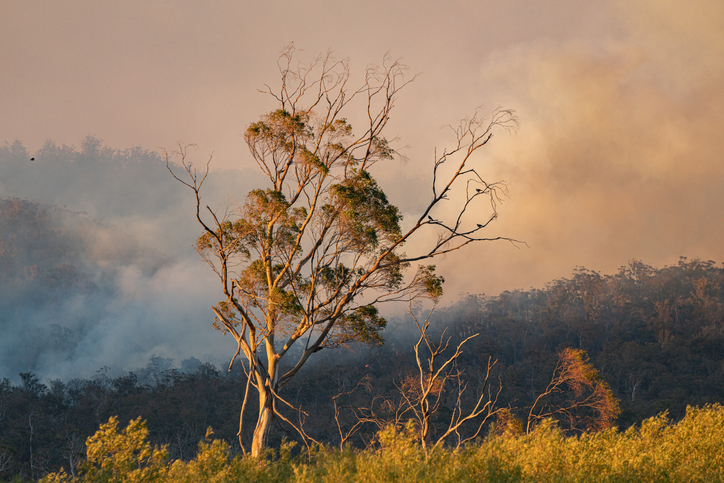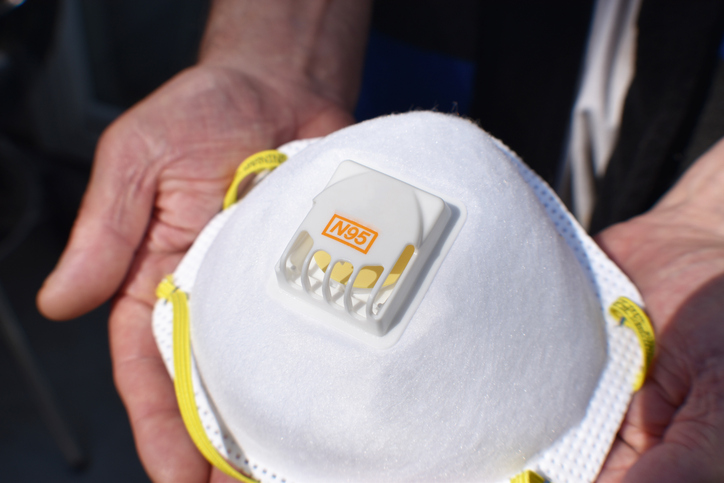
Smoke from bushfires, planned burns and other sources can impact air quality. Bushfire smoke contains toxic gases such as carbon monoxide and nitrogen oxides, and particles, all of which can be hazardous to your health.
Small particles in smoke affect the lung’s ability to breathe and cause coughing, a sore throat and runny nose. For healthy adults, these effects usually disappear quickly once they move away from the smoky conditions. However, exposure to smoke over long periods of time (several weeks to months) during bushfire seasons can increase the risk of lung disease, anxiety and distress.
People with heart or respiratory conditions (including heart failure and high blood pressure, asthma, bronchitis, emphysema and chronic obstructive airway disease) are more sensitive to the effects of breathing in smoke. Smoke is also more likely to affect children, pregnant women and older adults.
Fine smoke particles can contribute to inflammation and narrowing of blood vessels in the heart and trigger bronchospasm in the windpipes (bronchi) of the lungs, making breathing more difficult. Farmers or agricultural workers with pre-existing heart and lung conditions should avoid exposure to bushfire smoke where possible.
Tips to reduce your risk of bushfire smoke exposure
- Stay indoors where possible. Close all windows and doors. Use only air conditioners that recirculate internal air, and not those that introduce external air. Use a portable indoor air cleaner equipped with a True HEPA (high efficiency particulate air) filter.
- Travelling. If travel by car is necessary and safe, use re-circulated air in the car.
- Wear an AS/NZS approved P2 face mask. If you can’t stay indoors and you need to be outside – wear a P2/N95 dust mask that has been properly fit-tested. Note: P1 dust/surgical masks, handkerchiefs or bandannas do not filter out the fine particles of smoke and will not protect your lungs from smoke as effectively as a P2/N95 dust mask. It is important to note that while a P2/N95 dust mask will protect you from smoke, it can make it more difficult to breathe. If you do have a lung/heart or medical condition, you should seek medical advice about wearing a mask long before you actually need one. P2/N95 face masks with a valve will feel less claustrophobic to breathe through.
- Protect your eyes. The small particles in smoke will also irritate and cause sore, itchy eyes. Wearing a non-ventilated goggle or a smoke visor/goggle combination will protect and assist with visibility if working outdoors.
- Reduce physical activity outdoors. If you need to exercise, access indoor gyms and pools with good air quality.
- Quit smoking as it makes you more sensitive to air pollution.
- Trust your senses. If you smell and see smoke, the risk of high levels of exposure is likely. If you feel difficulty breathing, wheezing or a tight chest, seek urgent medical help and call triple zero (000).

On days of High Fire Danger Risk (FDR):
- Keep well and stay well hydrated.
- Follow local Fire Authority news and advice.
- Follow your fire plan to protect yourself from the threat of bushfires and smoke.
- Follow air quality information – be aware of the daily Air Quality Index (AQI).
- If you have a lung or heart condition and are on prescribed medication, make sure you update your management action plan, take your medication, and ensure you have enough medications for several days in case you can’t re-stock your supply easily.
It is crucial you remove yourself from smoke, seek medical help or call triple zero (000) if you start to experience the following:
- Difficulty breathing.
- Coughing.
- Chest tightness.
- Chest pain.
- Palpitations.
- Fatigue.
To find out more information about the dangers of smoke and your health visit Better Health Channel.
Fast facts:
- Bushfire smoke can affect your health, especially if you have lung or heart conditions.
- When bushfires are around, keep outdoor activities to a minimum where possible.
- Remember even after the fire has gone, smoke particles and gases can irritate and affect your lungs over the following days.
- Seek urgent medical help and call triple zero (000) if you have chest pain or breathing problems.
References used for this topic
More information:
Australian National University
How to protect yourself and others from bushfire smoke
Asthma Foundation
Bushfires and asthma
EPA Victoria
Smoke and your health
Department of Health and Human Services
Bushfires and public health
Research & reviews:
Medical Journal of Australia
Bushfire Smoke: Urgent need for a national health protection strategy (2020)
Medical Journal of Australia
Bushfire smoke responsible for over 400 excess deaths (2020)
|
|